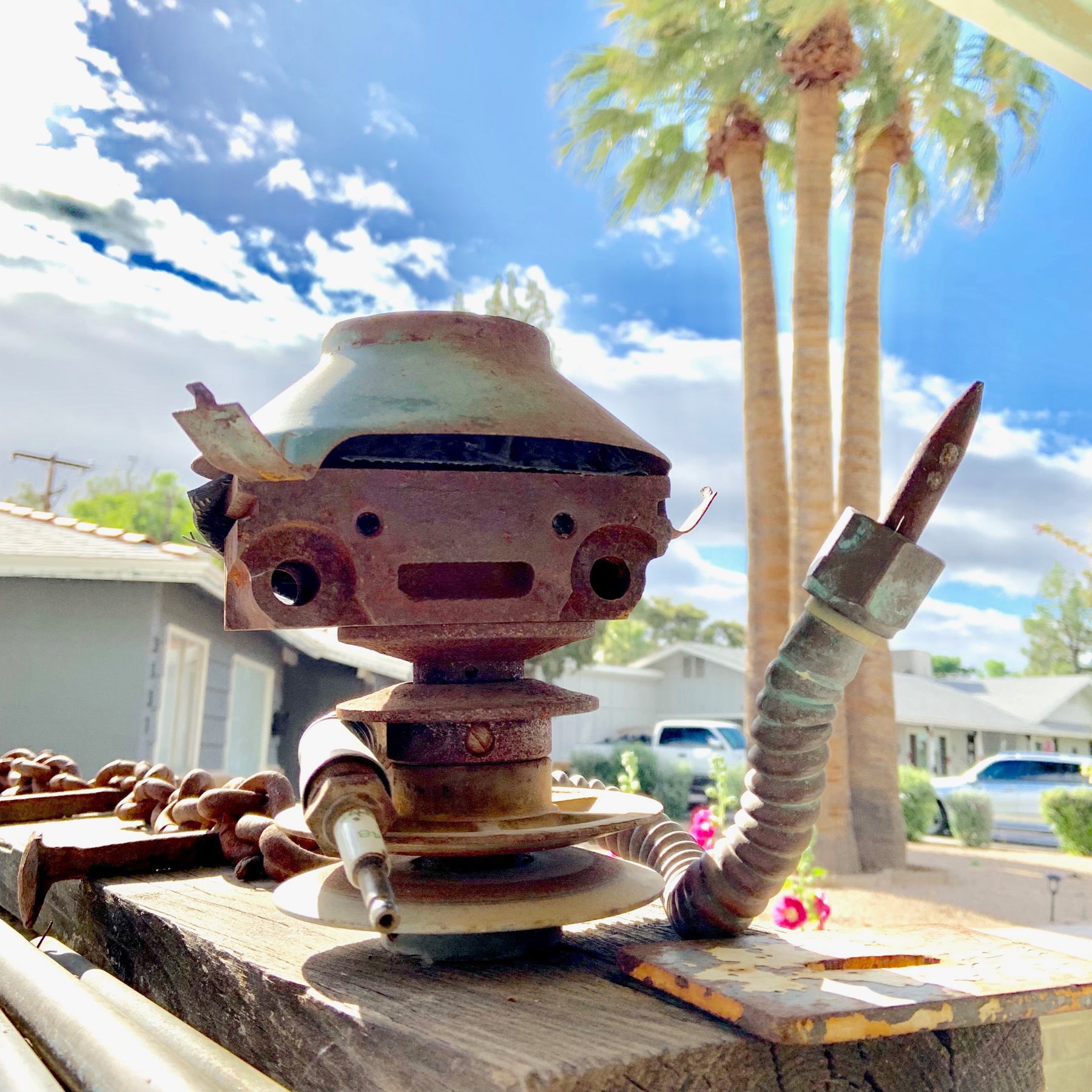Verses for a Prayer of Invocation
“Your word is a lamp to my feet and a light to my path.” (Psalm 119:105)
“Let the words of my mouth and the meditation of my heart be acceptable in your sight, O LORD, my rock and my redeemer.” (Psalm 19:14)
Blessing, Praising, and Prayer for Insight
- Ephesians 1:1–23
- In Christ Alone, TPH 265
God Delivers us from Death to Life
- Ephesians 2:1–22
- Not What My Hands Have Done, TPH 435
Paul’s Mission and Prayer for the Church
- Ephesians 3:1–21
- Love Divine, All Loves Excelling, TPH 265
The Church in Image and Action
- Ephesians 4:1–5:2
- The Church’s One Foundation, TPH 404
New Saints in a Sinful World
- Ephesians 5:3–21
- O Light That Knew No Dawn, TPH 221
Exhortations for Christian Households
- Ephesians 5:22–6:9
- Oh, Blest the House, TPH 548
Prepared for Battle and Conclusion
- Ephesians 6:10–24
- Soldiers of Christ, Arise, TPH 540
Verse for Closing Prayer
“so that Christ may dwell in your hearts through faith—that you, being rooted and grounded in love, may have strength to comprehend with all the saints what is the breadth and length and height and depth, and to know the love of Christ that surpasses knowledge, that you may be filled with all the fullness of God” (Eph 3:17-19)
Notes:
- The verses given for the prayers are not to be read, although there’d be nothing wrong with that. They are there to help you shape and direct your prayer. Matthew Henry provides a good example of how this can be done. Read his prayers and notice how he weaves together verses from the Bible to express his heart to God.
- TPH = Trinity Psalter-Hymnal. You can look for more or different hymns, even in other hymnals, using hymnary.org.
- The passages should be read with the text with the goal of communicating the meaning of the text, though without additional comment. So, no sermon, just good reading. Daniel I. Block calls this “expository reading” in his book, For the Glory of God: Recovering a Biblical Theology of Worship, 191. Block says: “Expository reading means reading the Scriptures so that their literary qualities are appreciated, their message understood, and their transformative power experienced.”
Visit christopherchelpka.com/simple-liturgies/ for more simple liturgies like this one.
As I understand it, Diakonia Studies: Critical Issues in Ministry is a kind of updating and commentary and clarifying and restating of Collins’s earlier work on this subject. If you want to figure out this book, carefully read the introduction.
And wow, I can see now why Collins’s works come up so much in the recent secondary literature on deacons. He does a ton of primary source work that leads to unconventional conclusions. And if he’s right, that many of us are operating on a misunderstanding the diakonia word-group, then this is a really big deal.
I wish I could write a full-review, but I really need to just get on with appropriating his work. I’ll just say that while there are conclusions in this book I disagree with and arguments that I find week, most of his major points seem right and help answer some common and thorny questions surrounding the office of deacon, among other things. And I’m so thankful for the amount of work he’s done on this topic, both inside and outside the Scriptures. Lots to think about. I’m really glad I read this.
I suppose that when you create your own Indiepaper read-later feed on Micro.blog, you could share it with others. So it’s not locked. But is it discoverable? cc: @manton @cleverdevil
🎵 For your summer playlist: My friend, Austin Britton, singing and playing his heart out on his album A Light for the Next Hour. Get yourself a copy @austinbrittonmusic.com.
⛪️ One of my elders asked me to write another ready-to-use liturgy in case I get sick or some planned pulpit supply falls through. I did that and created a page to collect these.
Verses for an Invocation Prayer:
“Who is like you, O LORD, among the gods? Who is like you, majestic in holiness, awesome in glorious deeds, doing wonders?” (Ex. 15:11 ESV)
“O LORD, who shall sojourn in your tent? Who shall dwell on your holy hill? He who walks blamelessly and does what is right and speaks truth in his heart;” (Psalm 15:1–2 ESV)
“For Christ has entered, not into holy places made with hands, which are copies of the true things, but into heaven itself, now to appear in the presence of God on our behalf” (Heb. 9:24 ESV)
“ If then you have been raised with Christ, seek the things that are above, where Christ is, seated at the right hand of God. Set your minds on things that are above, not on things that are on earth. For you have died, and your life is hidden with Christ in God. When Christ who is your life appears, then you also will appear with him in glory.” (Col 3:1-4 ESV)
Creed: Westminster Confession of Faith 2.2 (TPH, 921)
Hymn: Now unto the LORD, All You Sons of the Mighty (TPH, 29A)
Expository Reading: Isaiah 6
Hymn: A Shoot Will Spring from Jesse’s Stump (TPH, 302)
Lord’s Prayer: “Our Father in heaven, hallowed be your name. Your kingdom come, your will be done on earth as it is in heaven. Give us this day our daily bread, and forgive us our debts, as we also have forgiven our debtors. And lead us not into temptation but deliver us from evil. For yours is the kingdom, and the power, and the glory, forever. Amen.”
Hymn: Holy, Holy, Holy! (TPH, 230)
Expository Reading: Hebrews 9, Revelation 4-5
Hymn: By the Sea of Crystal (TPH, 473)
Verses for Prayer Asking for God’s Blessing:
“Blessed be the God and Father of our Lord Jesus Christ, who has blessed us in Christ with every spiritual blessing in the heavenly places, even as he chose us in him before the foundation of the world, that we should be holy and blameless before him.” (Eph 1:3–4 ESV)
But you, beloved, building yourselves up in your most holy faith and praying in the Holy Spirit (Jude 1:20 ESV)
Now to him who is able to keep you from stumbling and to present you blameless before the presence of his glory with great joy, to the only God, our Savior, through Jesus Christ our Lord, be glory, majesty, dominion, and authority, before all time and now and forever. Amen. (Jude 20, 24–25 ESV)
Hymn: Doxology (TPH 567)
Notes:
- The verses given for the prayers are not to be read, although there’d be nothing wrong with that. They are there to help you shape and direct your prayer. Matthew Henry provides a good example of how this can be done. Read his prayers and notice how he weaves together verses from the Bible to express his heart to God.
- TPH = Trinity Psalter-Hymnal. You can look for more or different hymns, even in other hymnals, using hymnary.org.
- In “expository reading,” one reads the text with the goal of communicating the meaning of the text, though without additional comment. So, no sermon, just good reading. I learned this term from Daniel I. Block in his book, For the Glory of God: Recovering a Biblical Theology of Worship, 191. Block says: “Expository reading means reading the Scriptures so that their literary qualities are appreciated, their message understood, and their transformative power experienced.”
Visit christopherchelpka.com/simple-liturgies/ for more simple liturgies like this one.
For me, the most helpful point Patrick Lencioni makes in Death by Meeting is what he calls “Meeting Stew.”
The single biggest structural problem facing leaders of meetings is the tendency to throw every type of issue that needs to be discussed into the same meeting, like a bad stew with too many random ingredients.
This kind of meeting frustrates people because those who attend will have different and even conflicting goals. Some will want the soup to be fancy, others will want something plain and soothing, still others are hoping for a dessert. But this kind of mishmash gives no one what they want and lets everybody down.
So what you need, Lencioni writes, is “different meetings for different purposes.” There are four types.
- The daily, 5 minute check-in. Focuses on connecting priorities to daily actions.
- The weekly, 45-90 minute tactical meeting. Each member does quick reporting on top priorities, reviewing progress, and deciding tactical issues to meet short-term objectives.
- The monthly, 2-4 hours strategic meeting. The team gets to debate, discuss, and analyze fundamental issues that were previously put in the “parking lot”.
- The quarterly, 1–2 day off-site review. The team completes a comprehensive strategy review, a team review, a personnel review, and a competitive and industry review.
Lencioni discusses the particular challenges to each of these meetings. He also recognizes that some organizations may struggle to follow this advice because of their circumstances. This is true for the various service teams at Covenant, including the session, whose members worship together weekly, but live far enough apart that make frequent meetings throughout each month impossible.
There are a few possible solutions in my opinion:
- choose fewer objectives and/or do them more slowly; aim for sustainability over speed
- have certain “easy” meetings via video/voice calls;
- have longer meetings, combining, say, types two and three, but break these longer meetings up into distinct parts
And while I’m having fun applying a business book to the church, I’ll say Lencioni’s advice is good for families too. Having daily and even more frequent check-ins is essential for my wife and me, as are long, uninterrupted times for discussing big decisions. We haven’t yet implemented the quarterly, off-site review but that sounds fantastic!
Let’s do a little theology.
In the Nicene Creed we call God, “Father.”
According to Scripture, there are several true ways we can understand the name “Father” as it applies to God. Each reflects something important about God and about ourselves in relationship with him.
First, we can call God “Father” as the creator of the world and the world to come. The Triune God is our maker. He makes us in his image and puts us into a covenant with him. Luke calls Adam, “the son of God” in Luke 3:38. In this sense, we can therefore call all three persons of the Trinity “Father” as Isaiah does in Isaiah 9:6 when he prophesies about Jesus:
For to us a child is born, to us a son is given; and the government shall be upon his shoulder, and his name shall be called Wonderful Counselor, Mighty God, Everlasting Father, Prince of Peace.
Second, we can call God “Father” when we refer to the first person of the Trinity. In this way, he is called “Father” in relation to the Son, the second person of the Trinity. This occurs many places in Scripture. Here is one from John 6:40 where Jesus says:
For this is the will of my Father, that everyone who looks on the Son and believes in him should have eternal life, and I will raise him up on the last day.
Finally, Christians alone can call God the Father “Father” as those who have been adopted through the Son into sonship and thus unto an eternal inheritance. Ephesians 1:3–5, 11:
Blessed be the God and Father of our Lord Jesus Christ, who has blessed us in Christ with every spiritual blessing in the heavenly places, even as he chose us in him before the foundation of the world, that we should be holy and blameless before him. In love he predestined us for adoption to himself as sons through Jesus Christ, according to the purpose of his will… In him we have obtained an inheritance.
The necessity of focusing may be more difficult in the digital age, but it is not a new problem.
Writing in 1827, Samuel Miller, the presbtyerian minister and Princeton professor, wrote some points on the necessary habits of a good minister. One of them was “the habit of close and fixed attention in study.” Lacking this habit is the most “fatal defect in a student,” he wrote. Without it, one “will never look deeply into any thing; will never accomplish any thing which deserves the name of investigation.”
So if you lack the ability to focus, you should “try to attain it,” Miller says. And don’t give up if you struggle.
Try again and again. It is richly worth all the agony of effort that you can possibly make for its acquirement. Make incessant efforts, then, until you succeed, to summon your powers to concentrated action; to shut out, at pleasure, all extraneous objects; to go from step to step without interruption; and to keep fast hold of the thread which you first seize until you trace it to the end. From the moment you open a book, or take your pen in hand, give undivided attention to what you are about, until you close the one, or lay down the other.
Why work so hard to learn to focus? Because having such a skill will produce great results. Miller points to none less than Isaac Newton as proof, which he explains more in a letter that he wrote to his sons.
We are told of Sir Isaac Newton, that when questioned respecting the peculiar powers of his own mind, he said, that if he had any talent which distinguished him from the common mass of thinking men, it was the power of slowly and patiently examining a subject; holding it up before his mind from day to day, until he could look at it in all its relations, and see something of the principles by which it was governed. His estimate was probably a correct one. His most remarkable, and certainly his most valuable, talent consisted, not in daring, towering flights of imagination, or in strong creative powers; but in slow, plodding investigation; in looking at a series of facts, from day to day, until he began to trace their connection; to spell out their consequences; and ultimately to form as system as firm as it was beautiful."
I love this description of what focus and meditation on an idea involves. Clearly, Miller spoke from experience and the lessons he learned from those who came before him.
So while we may have new kinds of challenges, staying focused is an old probelm. It’s a skill every student must learn if he or she is “to accomplish any thing which deserves the name of investigation.”
For more context and lots more advice on studying and many other things read: Miller, Samuel. Letters on Clerical Manners and Habits. New York: G & C Carvill, 1827, 251–252.
And thanks to James M. Garretson for his book, An Able and Faithful Ministry: Samuel Miller and the Pastoral Office from which I first learned of these passages in Miller’s writing. See chapter twenty of his book for a summary of Miller’s views on “clerical manners and habits.”
🍸 Lift a glass to this beautiful olive tree. It’s about 65 years old. I wrote a little meditation on Psalm 128:3 with this tree in mind.

William Plumer (1802–1880) was a southern Presbyterian minister and professor. He held various positions within the church to help men prepare for the gospel ministry. And in conjunction with one of those roles, he wrote this essay on how one might determine whether he is called to the work.
Plumer explains that there is some difficulty in determining this, and that one’s conviction of God’s call may strengthen or weaken, even after becoming a minister. Nevertheless, there are points we can draw from both Scripture and common sense than can help with discernment.
He sets the tone in the preface when he encourages his readers to not even read the essay unless they are willing to consider the question of their calling with a humble, reverent, and deliberative spirit.
After this, he distinguishes between the general and special call of the believer to Christian ministry. And then writes breifly on each of the various and necessary evidences for a call. These include:
- earnest desire,
- sense of personal weakness but also confidence in God’s grace,
- a high view of the office, the consent of the church and the authorities in the church,
- a wise discernment of various providences,
- the essential qualifications for the office: “piety, prudence, knowledge, and the power of communicating knowledge in an appropriate manner,”
- and conviction of duty.
In the last few pages, Plumer concludes with a list of reasons why some men resist a call and why some men pursue a call without warrant. This list can help those considering the call to calibrate their consciences. It can also help sessions and presbyteries shepherd the men under their care.
Jesus once fed more than 5,000 people using only five loaves of bread and two fish. With something as amazing as that, you’d be right to think that there are a number of things Jesus’ accomplishes with miracles. Here are a few:
- Jesus’ miracles comfort people who are trapped and oppressed in the world.
- Jesus’ miracles warn those who are too much in love with the world.
- Jesus’ miracles show how God uses ordinary things to accomplish extraordinary ends.
- Jesus’ miracles point to his suffering and exaltation.
I explained all this and read the record of this particular miracle in the sermon I preached last Sunday morning. Give it a listen. It’s about 30 minutes.
👋 Meet Watchman Wee. He was created by my dad, a meticulous craftsman who always keeps a bit of whimsy close by. I love that about my dad.

👁🗨 It’s the middle of the night. Do you know who your iPhone is talking to? from The Washington Post
Apple promises privacy, but iPhone apps share your data with trackers, ad companies and research firms
Good news: you can limit the tracking.
UPDATE: WSJ published a similar article.
🐌 Loading problems for my website are fixed now. Thanks to the Micro.blog slack community, esp. @mikehaynes for the help.
The beginning of the Nicene Creed refers to God as Father and Almighty.
I believe in one God, the Father Almighty
What do those two names mean to you?
For one, they are ways you can know God. Names are one way God describes himself to us. As Basil, a fourth century church father, pointed out in Against Eunomius:
There is no one name that is adequate to give complete description of God. Rather, there are many names for him, each of which has its own particular meaning…. Taken together they afford us only a small and unclear knowledge of God’s nature, but this is still adequate enough for our purposes.”1
Our purposes are to glorify God and enjoy him forever. His names help us to do that. With his names he comforts us, he humbles us, and he causes us to sing the with the angels:
“Holy, holy, holy, is the Lord God Almighty, who was and is and is to come!” (Rev. 4:8, ESV)
-
Cited in Ancient Christian Doctrine via Accordance. ↩︎

